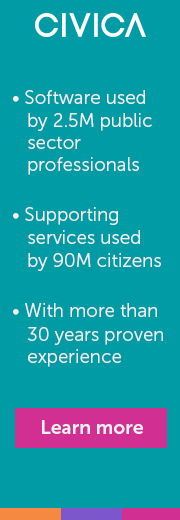The Government Commercial Function describes Legacy IT as a ‘multi-billion-pound problem’. Civica’s Executive Director (Central Government), Steve Thorn explains how a change in mindset can help to tackle this burning issue across the public sector.
Over the past few months, I’ve written at length in this magazine about the ‘data dilemma’ across our public services. Public bodies, from Whitehall to city hall, are sitting on a vast, veritable goldmine of data, which although growing by the day, remains largely untapped. That untapped data is more than just data lying idle on a spreadsheet; it is unexploited potential to deliver real change for the people and communities who need it most.
Cracking the data dilemma is eminently achievable, through a targeted focus on what we at Civica term the 3Ss – Standards, Skills and Sharing. But there remains another, increasingly risky, multi-billion-pound obstacle to tackling the public sector’s data dilemma: legacy IT.
Old technology creating new problems
In departments, agencies and other public bodies across the UK, there exists a plethora of ageing, perhaps obsolete systems and processes which are increasingly no longer fit for purpose, either in terms of functionality, connectivity, compliance, integration or supported technology. Often unable to interact with one other or with newer systems, legacy IT makes effective data sharing difficult, if not impossible. This lack of data sharing in turn hinders civil servants, NHS staff and other public officials from making smarter, more informed decisions and ultimately delivering the best outcomes for citizens.
As highlighted in the recent Digital, Data and Technology Playbook, obsolete systems and processes are also particularly vulnerable to attack, placing vital public services at serious risk. We’ve already seen numerous examples of this both at home and around the world, including denial-of service attacks on the NHS and other critical infrastructure. With cyber-crime becoming ever more complex and commonplace, the national security implications of the government’s legacy IT problem are becoming more serious by the day.
A journey, not a giant leap
Given the ever-quickening pace of technological advancement, it’s easy to understand how technologies, which were once trailblazers, are today’s legacy systems. For public bodies which are continuously procuring new solutions therefore, the burning question must be how to avoid a repeat of this in the future?
The critical first step must be to recognise that digital transformation is not a series of small steps, or even a giant leap; it’s a journey. And like any journey, it must be carefully planned, with everyone moving in the same direction towards a common destination. In the case of government’s digital journey, the Digital and Data Roadmap published in June spells out clear what the destination is: single log-in public services which are quicker, easier to use and rooted in high quality data. Getting there however, won’t be straightforward.
The post-pandemic recovery, a cost-of-living crisis and the climate emergency will undoubtedly throw up will twists and turns and it is imperative therefore, for public bodies to have digital technologies which are adaptable, interoperable, and rooted firmly in data. To do this, they must ensure they’re working with suppliers that are with them in lockstep on every step of their digital journey. For suppliers, this means continuously investing in both their technologies and their people to ensure their offering is fit for purpose and can adapt swiftly to change.
In September, a new prime minister will enter Downing Street facing a packed in-tray, ranging from the Levelling Up agenda to NHS reform to the 2050 Net Zero target. The success of each one of these crucial initiatives will hinge on having a well-oiled government machine, supported by world class digital infrastructure which is rooted in data, adaptable to change and which can stave off obsolescence. As with the data dilemma, this is entirely achievable.
More Information:
Visit our website: www.civica.com














